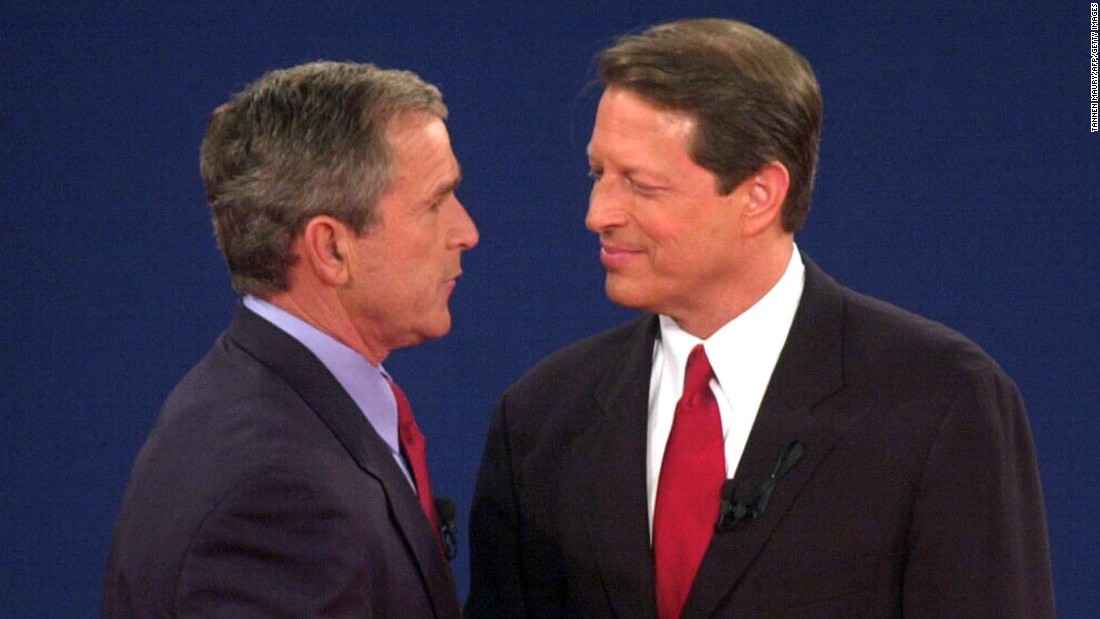
The Boston Globe | Op-ed | September 7, 2000
When will the liberal media stop treating left-wing ideology as a proxy for intelligence?
For months the press has questioned the intellect of Republican candidate George W. Bush, while describing Al Gore as “serious,” “intellectual” -even “wonkish.”
The basis for the media’s unfair attacks on Bush’s intelligence is his 30-year-old Yale College transcript (purloined last fall and published by The New Yorker). Yet The Washington Post‘s subsequent revelation of Gore’s unimpressive academic record has done little to alter the media’s false portrayal of Gore as “the smartest kid in the class.” It is a record that is worth reviewing, if only to debunk the myth of Gore as a serious student.
Gore’s undergraduate transcript from Harvard is riddled with poor marks, including a C-minus in introductory economics, a D in one science course, and a C-plus in another.
“In his sophomore year at Harvard,” the Post reported, “Gore’s grades were lower than any semester recorded on Bush’s transcript from Yale.”
Gore’s graduate school record — consistently glossed over by the press — is nothing short of shameful. In 1971, Gore enrolled in Vanderbilt Divinity School where, according to Bill Turque, author of “Inventing Al Gore,” he received F’s in five of the eight classes he took over the course of three semesters.
Not surprisingly, Gore did not receive a degree from the divinity school. Nor did Gore graduate from Vanderbilt Law School, where he enrolled for a brief time and received his fair share of C’s. (Bush went on to earn an MBA from Harvard).
But, whereas the liberal press has described Bush’s college days as a time of misspent youth, media accounts of Gore’s undergraduate years are grossly fawning (The New York Times: “As Mr. Bush was frolicking around Yale, a young man named Al Gore was studying at Harvard'”; “Harvard nurtured the part of (Gore) that is in love with the world of ideas.” The New Republic: “At Harvard, Gore set himself formidable intellectual challenges.”)
And then there is the laughable October issue of Psychology Today. As part of a cover story entitled “Gore and Bush on the Couch,” the magazine reports the results of a spurious “analysis” of 10 of the candidates speeches and/or interviews. The authors claim that the study “verifies” the popular stereotype that “Bush is not as deep a thinker as Gore.”
Two pages later, readers will be shocked – shocked! – to learn that the magazine’s (no doubt scientific) study of the candidates’ facial gestures reveals that Gore is the “more serious, constrained, controlled, weighty, ponderous, (and) dominant of the two candidates.” More ponderous, perhaps… but, please, spare me the pop psychology.
Biased reporters, however, are not the only ones to blame. Indeed, the vice president himself has cultivated this genius persona (one of many). Thus, he did not correct PBS News anchor Gwen Ifill when she referred to him as a graduate of Vanderbilt Law School. Even more significant was the line in Gore’s convention acceptance speech in which he stated, “I know my own imperfections. I know that sometimes people say I’m too serious, that I talk too much substance and policy.”
Poor Al, he’s just too smart for the job.
Of course, the stereotyping of conservative candidates as dumb and liberal candidates as “brilliant” is nothing new.
During the 1950s, the media lionized Democrat Adlai Stevenson as an intellectual, while ridiculing Republican Dwight Eisenhower as an ineffectual simpleton. Back then, the members of the press knew full well that Stevenson attended Harvard Law School and, yet, had not received a degree. But the media gave Stevenson a pass. (Sound familiar?)
Had resourceful journalists investigated, they might have learned (as we now know from Stevenson’s biographer John Bartlow Martin) that Harvard Law School Dean Erwin Griswold had hidden Stevenson’s transcript in a locked cabinet in his office.
What was he hiding?
Stevenson, the so-called “thinking man’s candidate,” had, in fact, flunked out of Harvard Law.
In the end, neither intellect nor academic performance is an especially important criterion by which to judge our presidents. Ronald Reagan and Harry Truman were no scholars, but they rank among the best presidents in our country’s history.
And what about many liberals’ favorite president, Franklin Roosevelt? Social, popular, and famously unserious as an undergraduate at Harvard, FDR had an undistinguished academic record. Yet, later in life, Roosevelt’s charisma and his ability to persuade, compromise, and lead helped him to become a “reformer with results.”
This election is not an I.Q. test; it is about which candidate has better judgment. And that is why, despite the media’s love affair with the celluloid image of Al Gore the policy-wonk, it is the affable, authentic, and sensible Bush who would make the better leader.
Originally published in the September 7, 2000 print edition of The Boston Globe.
